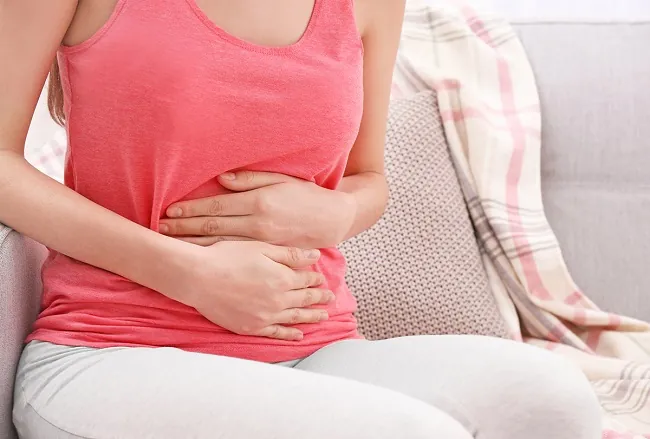By Sade Oguntola
It is the twenty-first century, yet discussions about menstruation still occur behind closed doors. Many women and girls remain uncomfortable discussing their periods or related issues due to the pervasive culture of shame surrounding this natural process.
Many women experience menstrual pain, with at least 70 to 80 per cent reporting painful periods. For some, the pain can become so severe that it leads to fainting spells or requires hospitalization during their menstrual cycle.
Menstrual cramps are a normal part of being a woman. While some discomfort is common, severe pain, known as dysmenorrhea, can significantly disrupt daily activities.
UNICEF’s Social Behavioral Specialist, Mrs. Aderonke Akinola-Akinwole, spoke at a media dialogue organized by the Oyo State Ministry of Information and Orientation in collaboration with UNICEF at the Oyo State government’s secretariat, said the veil of false modesty present in various cultures has resulted in numerous misconceptions and myths surrounding menstruation, particularly regarding menstrual pain and cramps.
Common myths and misconceptions about menstruation include the beliefs that menstruation is dirty and makes a person unclean; that once a girl starts menstruating, she is ready for marriage; and that food prepared by a woman during her menstruation is not tasty.
Some believe that bathing during menstruation can lead to infertility in women, and that a woman who is menstruating should not go to the farm because it may affect plant growth.
ALSO READ FROM NIGERIAN TRIBUNE: Tinubu departs Saint Lucia for BRICS Summit in Brazil
Additionally, in many cultures, prevalent myths about menstrual cramps include the beliefs that menstrual cramps are merely a normal aspect of being a woman, that cramps are solely caused by uterine contractions, that taking pain relievers can lead to infertility, and that consuming cold food or drinks exacerbates cramps.
Some discomfort is common, but severe pain, known as dysmenorrhea, is accompanied by significant emotional and physical distress. Prostaglandins, hormone-like substances that induce contractions in the uterus, are a primary trigger for cramps.
Dr Ijeoma Agbo, a health specialist at the UNICEF Lagos field office, stated that menstrual pain and cramps are the most significant issues concerning adolescents when discussing menstruation. Some individuals reported that the pain was so severe they required strong painkillers, while others mentioned being admitted to the hospital for treatment of their pain.
“You cannot predict how your body will react during your menstrual period. Some women experience it with ease, while others find it more challenging, much like childbirth. Some women go through labour without making a sound, while others endure significant pain. Additionally, individuals have varying pain thresholds,” she added.
However, Dr. Agbo stated that taking painkillers can help alleviate menstrual cramps but will not cause infertility in the future.
She stated: “Before prescribing painkillers, we typically recommend natural methods such as applying a heating pad, using a hot water bottle, or taking a warm bath. Staying hydrated by drinking plenty of water and ensuring adequate relaxation can also help reduce menstrual pain.
“For painkillers, it is recommended to take a dose and then, after eight hours, take another dose. However, if the pain remains excruciating or reaches a point where it is not alleviated by the medication, it is advisable to see a doctor after three days. Severe pain may indicate underlying conditions such as endometriosis or adenomyosis.”
Dr Agbo stated that these painkillers should be taken with food to prevent complications such as peptic ulcers, but they do not cause infertility.
Infertility in women can be attributed to various factors, including infections resulting from inadequate menstrual hygiene. “Infections can lead to the blockage of the fallopian tubes, which in turn can cause infertility, she added.
Moreover, Professor Imran Morhason-Bello, a consultant obstetrician and gynaecologist at the University of Ibadan, stated, “I am not aware of any medication that we prescribe for women with menstrual cramps that could lead to infertility later in life.”
He stated that menstrual pain can be classified into two types. The first type occurs when the pain begins but disappears immediately after menstruation starts. In the second type, the pain intensifies as menstruation begins.
Morhason-Bello added, “In most cases, as individuals begin to menstruate, the pain often becomes more severe due to secondary causes such as fibroids and endometriosis. Many people who experience menstrual pain may have endometriosis without realizing it.
“If endometriosis is extensive, it can lead to infertility on its own. It triggers a significant inflammatory response, and if left untreated, it may cause blockages in the fallopian tubes. Additionally, it can sometimes affect ovulation as well.”
So, it is important to separate fact from fiction regarding menstrual cramps and to seek medical advice if you experience severe pain or have concerns about your menstrual cycle.
